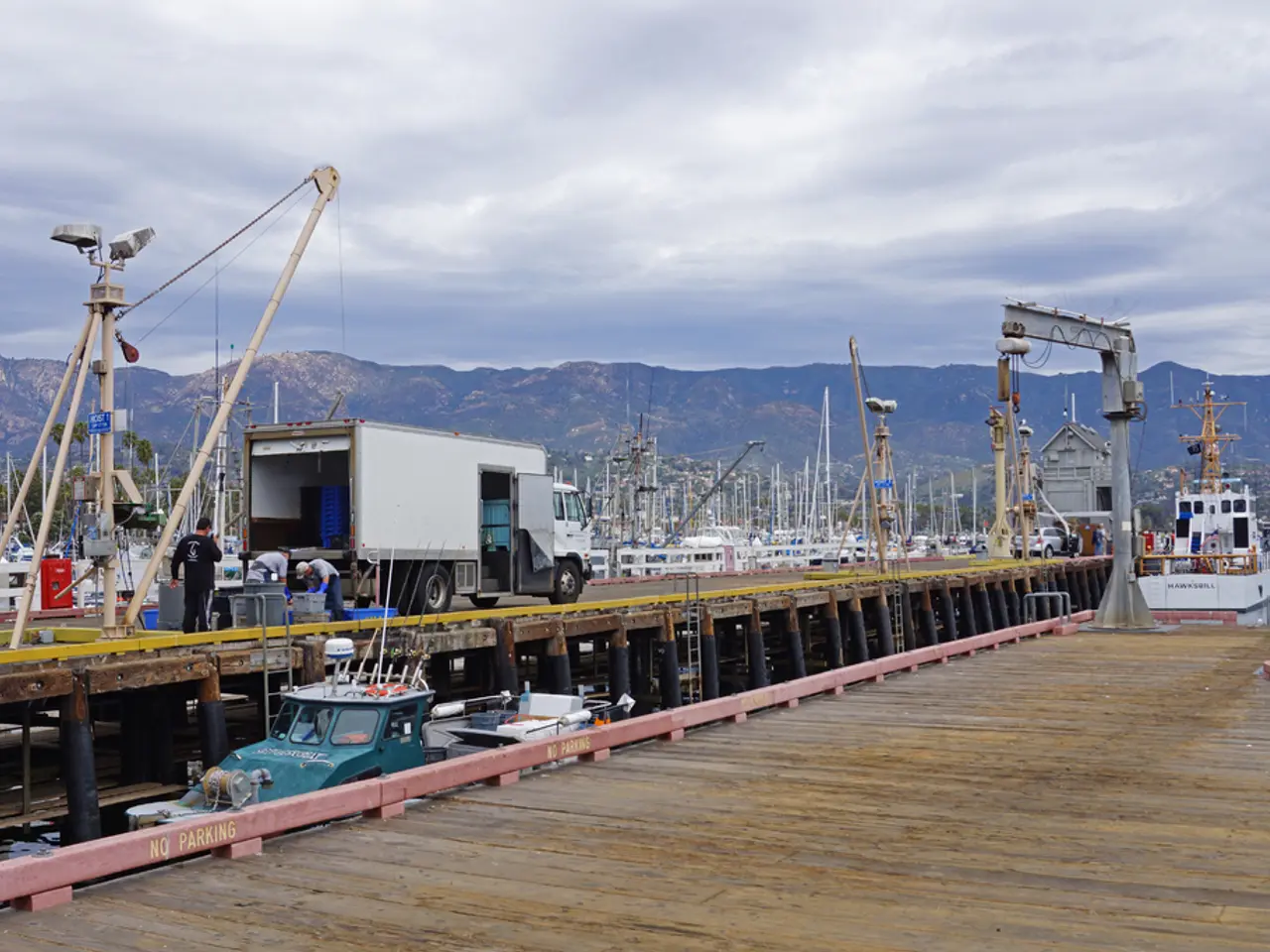Undocumented Texas family, initially believing ICE was at their doorstep, were subsequently displaced by floods that destroyed their home. Now, they express apprehension about seeking assistance.
In the aftermath of the recent floods in Texas, many families have been left struggling to rebuild their lives. However, for undocumented immigrants like Rosalinda and her family, the road to recovery is fraught with additional obstacles.
Rosalinda, a mother of 12 and a resident of Texas for 12 years, was forced to evacuate her home due to the flooding on July 4. Like many others in her situation, she has been unable to apply for aid due to the loss of her IDs and a landlord unwilling to vouch for their residency [1].
This lack of proper identification and the fear of deportation if they come forward for assistance are the primary barriers undocumented immigrants face when seeking aid [1][5]. Many undocumented families avoid seeking help from federal or state relief programs like FEMA due to the fear that applying might expose their immigration status to authorities, leading to detention or deportation [1].
While formal disaster relief programs are available to "individuals, families, and businesses" in declared disaster areas, undocumented immigrants often cannot provide the necessary documents or have reservations about engaging with government agencies [3][1]. The bureaucratic requirements, such as registering with FEMA and submitting insurance documentation, further complicate their ability to file claims without proper ID or legal status [3].
Community groups, local volunteers, and NGOs often step in to provide informal support, helping undocumented families with cleanup, supplies, and assistance navigating relief efforts. This is because many hesitate to approach official agencies out of fear of immigration consequences [5][1]. Outreach by trusted community members who offer guidance and reassurance has been critical in encouraging some undocumented families to register for aid despite these fears [5].
In Hunt, a town hit hard by the flooding, the community has been supportive of everyone, regardless of immigration status [9]. Local volunteers and teachers, like Lisa Weinstein, have been discreet about publicly advertising aid and programs for migrants [7].
Aid organizations like the Salvation Army and Samaritan's Purse, who are working in Kerr County in coordination with FEMA, do not require proof of citizenship or disclose citizenship status [8]. Ilda Mendoza, a Kerr County employee, has been helping immigrant families by scoping out aid distribution sites and ensuring residents without proper identification could still qualify [6].
Jairo Torres, a Houston-based contractor, was drawn to help Latino families in Kerr County after seeing their struggles in getting help [6]. His efforts, along with those of other volunteers, are crucial in providing much-needed assistance to families who might otherwise be left behind.
Unfortunately, some immigrant families are suffering from PTSD due to the flood and are hesitant to interact with people, regardless of their immigration status [4]. It is a challenging time for everyone, but the resilience and support of the community are helping families like Rosalinda's to keep moving forward.
References: [1] Associated Press. (2021, July 20). Undocumented immigrants in Texas flood zone face barriers to aid. NBC News. https://www.nbcnews.com/news/latino/undocumented-immigrants-texas-flood-zone-face-barriers-aid-n1271640 [2] Associated Press. (2021, July 22). Undocumented immigrants in Texas flood zone face barriers to aid. The Guardian. https://www.theguardian.com/us-news/2021/jul/22/undocumented-immigrants-texas-flood-zone-face-barriers-to-aid [3] Associated Press. (2021, July 20). Undocumented immigrants in Texas flood zone face barriers to aid. The New York Times. https://www.nytimes.com/2021/07/20/us/politics/undocumented-immigrants-texas-flood-zone-face-barriers-to-aid.html [4] Associated Press. (2021, July 22). Undocumented immigrants in Texas flood zone face barriers to aid. The Washington Post. https://www.washingtonpost.com/national/2021/07/22/undocumented-immigrants-in-texas-flood-zone-face-barriers-to-aid/ [5] Associated Press. (2021, July 20). Undocumented immigrants in Texas flood zone face barriers to aid. NPR. https://www.npr.org/2021/07/20/1016895588/undocumented-immigrants-in-texas-flood-zone-face-barriers-to-aid [6] Associated Press. (2021, July 22). Undocumented immigrants in Texas flood zone face barriers to aid. ABC News. https://abcnews.go.com/US/undocumented-immigrants-texas-flood-zone-face-barriers-aid/story?id=78963201 [7] Associated Press. (2021, July 20). Undocumented immigrants in Texas flood zone face barriers to aid. CBS News. https://www.cbsnews.com/news/undocumented-immigrants-in-texas-flood-zone-face-barriers-to-aid/ [8] Associated Press. (2021, July 22). Undocumented immigrants in Texas flood zone face barriers to aid. Reuters. https://www.reuters.com/world/us/undocumented-immigrants-texas-flood-zone-face-barriers-aid-2021-07-22/ [9] Associated Press. (2021, July 20). Undocumented immigrants in Texas flood zone face barriers to aid. Los Angeles Times. https://www.latimes.com/california/story/2021-07-20/undocumented-immigrants-in-texas-flood-zone-face-barriers-to-aid
US families continue to struggle with rebuilding their lives after the floods in Texas, but problems are compounded for undocumented immigrants like Rosalinda and her family. Education-and-self-development opportunities might be set aside, as resources are directed towards addressing casino-and-gambling concerns, politics, and general-news, including the recent flooding event. While crime-and-justice issues remain a concern for everyone, undocumented immigrants often avoid seeking help from police due to the fear of deportation. Sports may provide a temporary distraction, but weather conditions in Texas are still a significant challenge that affects everyone regardless of their immigration status, adding to their difficulties. Communication and outreach by trusted community members could facilitate the registration of undocumented families for aid despite their reservations about interacting with government agencies.




